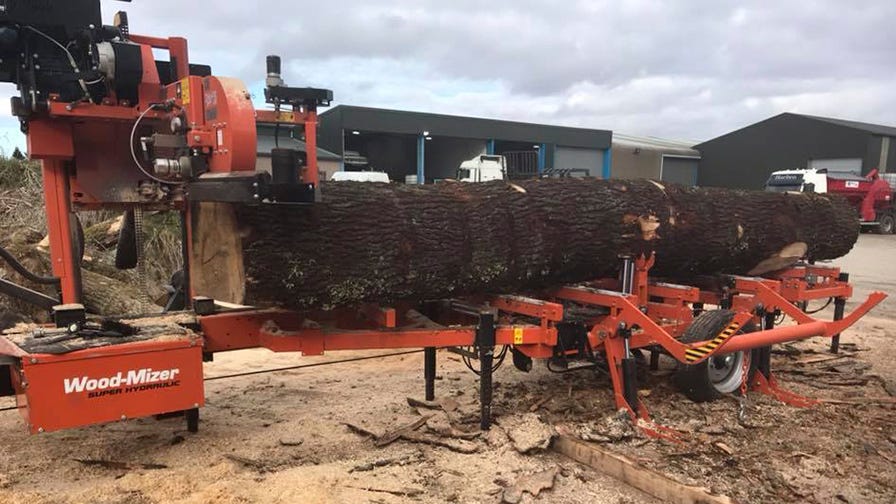Mobile Contract Sawmilling in Scotland
By Mareks Lomako, Wood-Mizer
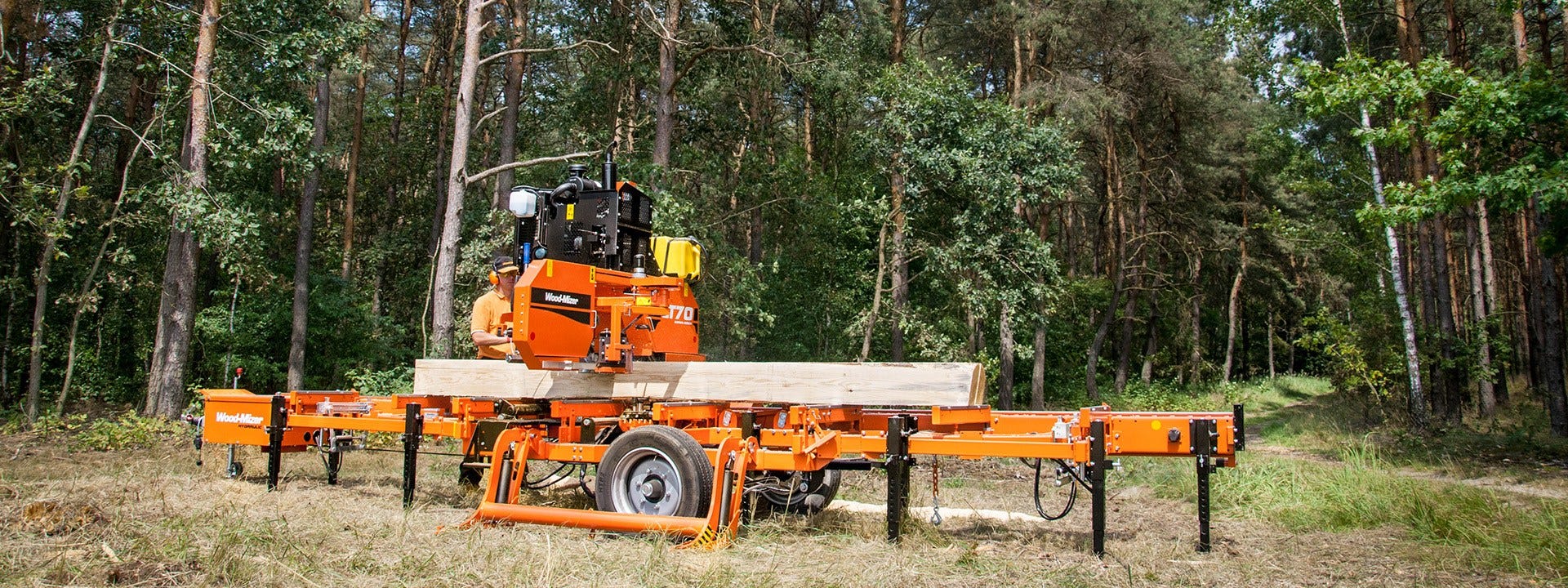
Five tips on contract sawmilling from an experienced Scottish sawmiller. Watch this interview to learn more tips about contract wood cutting with a mobile sawmill.
Keith Threadgall is a contract sawmiller from Scotland. He started operating a Wood-Mizer sawmill in 1999, first as a full-time operator and later as a contract sawmiller.
Now Keith runs his own mobile sawmill company based in South Scotland, doing milling for customers all around Scotland. “I have been sawmilling for over 20 years,” says Keith. He is well known in the area as a hardworking and reliable mobile sawmill business. His knowledge of Wood-Mizer sawmills and years of experience have led him to become a Wood-Mizer representative in 2011.
Tip 1 – Learn your market and your customers
When doing mobile contract sawmilling, Keith visits a lot of farmers, estate owners and other people who need logs milled. Farmers and estate owners usually require softwood timber for building sheds, fencing, cladding and other projects. He recalls that a lot of his usual customers are timber framers who need custom timber made from their own oak logs.
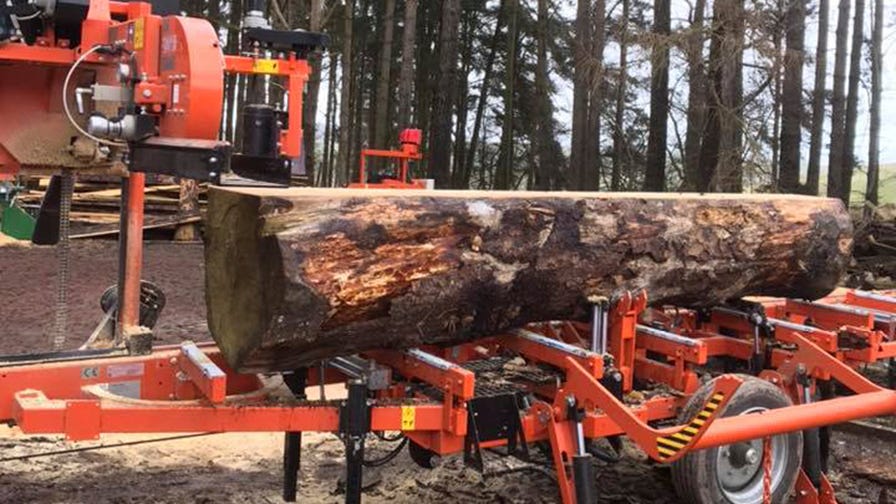
Tip 2 – Plan your trips in detail, visit multiple customers in one area
A large part of rural Scotland is very difficult to access. Sometimes Keith leaves home for several days, as it takes him up to five hours to reach distant parts of Northern Scotland with a lot of single-track roads. “Often what I do is travelling a day earlier and staying in a Bed and Breakfast near the milling location,” says Keith. “I usually try to coordinate milling for different customers in the area, to spend less time traveling. Sometimes people are OK with me arriving in the afternoon because they need time in the morning to prepare for my visit. That works quite well into my favor,” adds Keith.
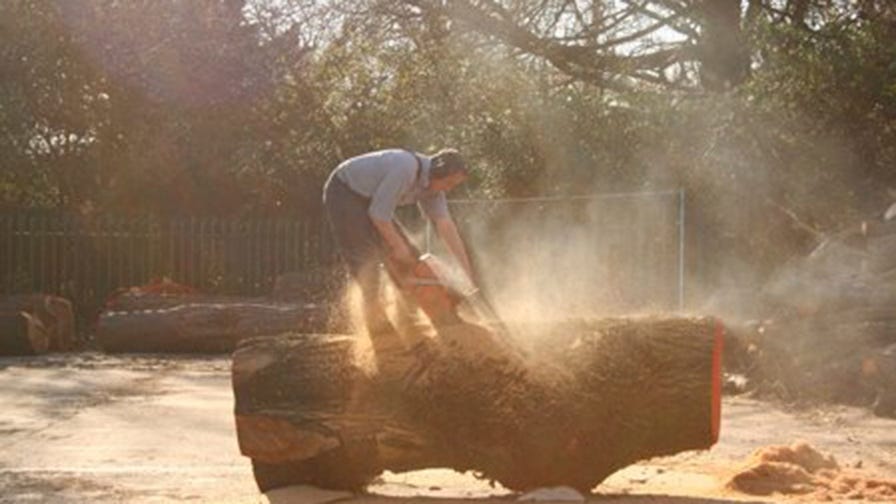
Tip 3 – Take blades, spare parts, tools and other consumable with you
Usually Keith travels alone so he makes sure that he has enough spare parts and blades with him. “I usually travel by myself and if any assistance or special machinery is needed, I leave this to be organized by a customer. I always take with me fuel for the sawmill, blades, spare parts, chain saws and tools," shares Keith. “I usually take four to six blades for a day of milling, that gives me around one to two hours of milling per blade. If I go for 3-4 days, then I take at least 20 resharpened blades and at least a box of new blades just as a back-up. As for spare parts I usually take B57 drive belts, blade guide rollers, nuts and bolts for adjusting your blade guide alignment, fuel filters. Basically, these things usually are not available in remote areas," Keith says.
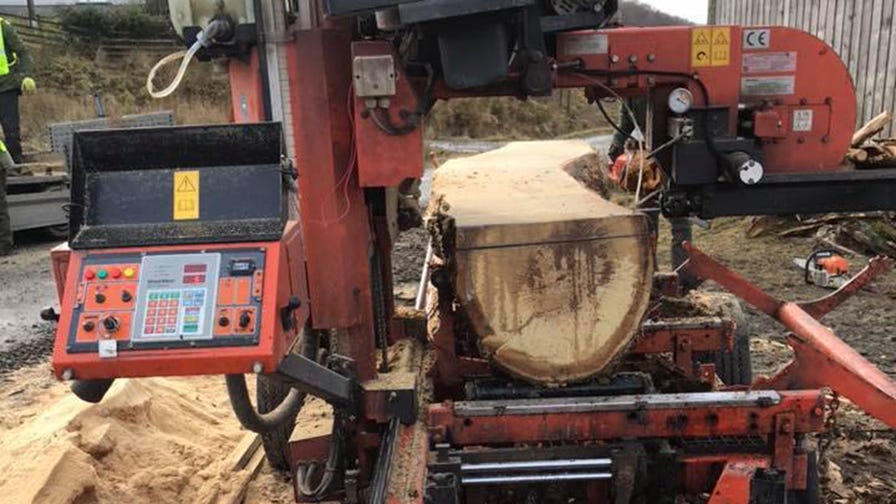
Tip 4 – Give your customer exact dates and always be on time
Mobile sawmilling is not very competitive in Scotland. Being available to customers has helped Keith get more business: “A lot of It comes down to hard work and dedication, being able to plan ahead. Sometimes contract sawmillers just say they will have time in a few weeks but don't give a specific date. I always try to give exact dates when I can visit customers. This allows them to organize labor, machinery, estate and timber for milling," said Keith.
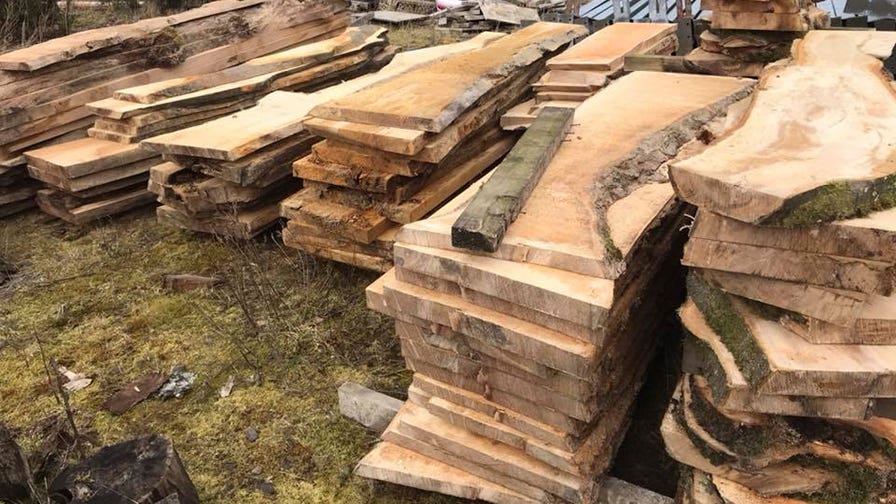
Tip 5 – Don’t hold back, share your experience, sell sawmills
Keith said that many of his customers are looking for used sawmilling equipment. Some customers are interested in buying a sawmill and would love to run their own side-business. “I have been keeping my sawmills for a year or two and then selling them. I find that there is a price bracket where people will buy a sawmill and keep it as a part time operation."
